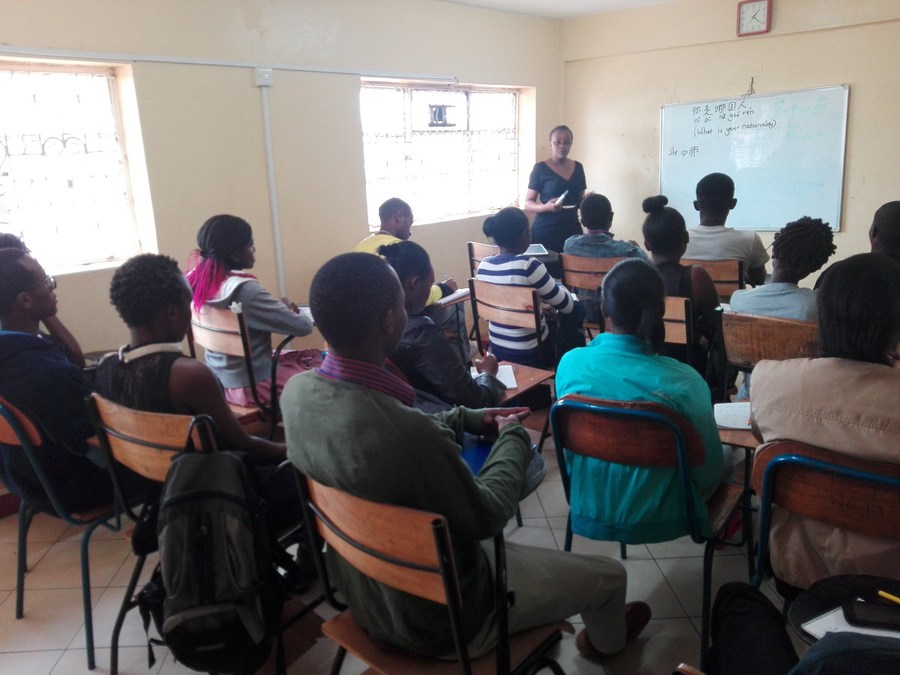Ruth Sarah Achieng, 36, is among a growing number of Kenyans who are finding financial success using the Chinese language amid a flourishing relationship between Kenya and China.
NAIROBI, Oct. 17 (Xinhua) — The reality for many Kenyans who graduate from school is the “tarmac,” a popular term used to describe a long period of searching for a job. It is usually characterized by despondency and countless rejections.
But that was not the case for Ruth Sarah Achieng, 36, who enrolled for a Certificate in Chinese Language and Culture and landed a job shortly after graduating and returning to Kenya.
“Since I started working, I have never been without a job. The opportunities for those with Chinese proficiency are everywhere you look,” Achieng told Xinhua during a recent interview in the Kenyan capital of Nairobi.
The amiable senior university administrator is among a growing number of Kenyans who are finding financial success using the Chinese language amid a flourishing relationship between Kenya and China.
The deepening ties between the two countries have led to increased Chinese investment in Kenya, resulting in a greater need for translators and interpreters for the Chinese-speaking community.
Opportunities for a person speaking Mandarin (standard Chinese language) are extensive and inexhaustible, Achieng said as she broke into a gleeful narration of how she immersed herself in the Chinese language and culture.

Juliet Gachago, a Chinese language translator, teaches Chinese in Nairobi, Kenya, Oct. 13, 2023. (Photo by Chrispinus Omar/Xinhua)
After finishing her degree in information science, Achieng was at home awaiting graduation when she came across an advertisement in the newspaper calling for students to enroll in a Chinese language certificate program at a local university.
Her innate interest in art and culture drove her to apply, and she was accepted. “That was in 2007, and after completing the program, I performed well and was sponsored by the Chinese Ministry of Education to continue my studies in China’s Shandong Province,” Achieng said.
There is a huge demand for people with Chinese proficiency in the job market; however, the need is yet to be satisfied. Achieng said there are constant calls for Chinese language translators and interpreters from East African countries such as Uganda.
She added that young people need to be educated about the importance of learning foreign languages as a viable career option. “More students are still not convinced that languages can help you succeed. You can still be a doctor and a lawyer, and knowing a foreign language gives you an advantage.”
Juliet Gachago, a Chinese language translator, went to China in 2010 after receiving a scholarship from the Confucius Institute. Gachago stumbled upon the Chinese language at Kenyatta University, where she was taking a tourism course. The major required her to pick one foreign language, and she had initially chosen German.
“I was fascinated by the Chinese language, so I took classes in my spare time,” Gachago said. She excelled and was able to secure a scholarship to study in China.
The Chinese language is one of the optional foreign languages introduced by the Ministry of Education in Kenya’s new competency-based curriculum. There are four Confucius Institutes in the country.
Gachago said the translation career has enabled her to travel numerous times in and outside the country. “The market is never too full. I urge you to learn something new every day. Don’t be afraid to make mistakes and learn from them.”
Source : Xinhua
















